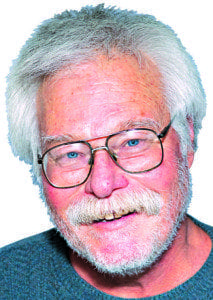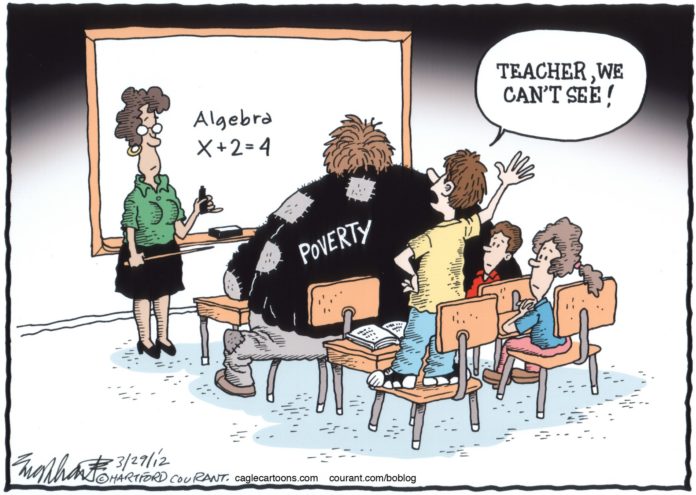BY JOHN THOMPSON
 Walking into the recent Oklahoma Department of Education conference It Starts Here: Trauma-Informed Instruction Summit, it was clear that this event would be different than so many symposiums during the corporate school reform era.
Walking into the recent Oklahoma Department of Education conference It Starts Here: Trauma-Informed Instruction Summit, it was clear that this event would be different than so many symposiums during the corporate school reform era.
Ordinarily, the hallway is full of breakfast foods and tables of deep-pocketed education consultants. During this time of austerity, the lack of pastries wasn’t that surprising. But the halls were full of tables of nonprofit social service providers.
Even before Oklahoma cut state spending more than any other state, its high-poverty schools couldn’t come close to tackling the challenges of generational poverty or students who have survived multiple Adverse Childhood Experiences [ACE].
After all, Oklahoma is tied for first in the nation in youth who have endured four or more ACEs. And three Oklahoma towns were recently identified as the places with the lowest life expectancy in the United States. No. 1 was Stilwell where life expectancy is down to 56 years, or the levels of sub-Saharan third world countries.
The drop of life expectancy of uneducated Oklahomans – and others who live in the middle of Trump country – has been attributed to “deaths by despair.” The combination of opioids and the lack of hope have created a crisis that can no longer be ignored.
The experts who contributed to the conference did not want to diminish the importance of pharmaceutical companies pushing opioids for controlling pain, but it was noted that persons who have had six or more ACES are 4,600 times more likely to become addicted to drugs/opioids.
For nearly two decades, corporate reformers have downplayed the importance of poverty and trauma, largely dismissing them as “excuses” for not addressing the “benign racism of low expectations.”
Too many education get-togethers have been dominated by the shortcuts for jacking up bubble-in test scores and holding individual educators accountable for overcoming the academic deficits that the poorest children bring to class. Given the utter failure of accountability-driven, competition-driven school reforms, it’s no surprise that education leaders are starting to call for wraparound services. But the other half of the message was [pleasantly] jolting.
Speakers began with the normative praise of individual teachers and their ability to single-handedly change lives. But the room of 800 educators from districts with the highest rates of trauma then heard “something radical.” Now it is time to “work together!”
As presenter Casey Gwinn said, we must unleash “the power of We.” Gwinn said that we must start with the wisdom that “it takes a village to raise a child,” but that is not enough. We need a village to promote humane, holistic, loving values, where trusting relationships rule. We need the single most important predictor of success in school, as well life – Hope!
Gwinn acknowledged that in one sense he was saying something similar to Mazlow’s hierarchy. Today’s cognitive science is building on years of research which explained why students basic needs must be addressed before we can systematically improve the academic outcomes of children suffering from “toxic stress.” But now there seems to be a consensus embracing science-based policies requiring partnerships and holistic remedies.
Gwinn didn’t deviate much from the typical speaker’s genre when he started to conclude the event by asking the audience to stand, and say aloud, “My future can be brighter than my past.”
But then he asked for the grand finale, “Our collective future can be brighter than our past!”
– Dr. John Thompson is an award-winning historian who became an inner-Oklahoma City teacher after the “Hoova” set of the Crips took over his neighborhood and he became attached to the kids in the drug houses. Now retired, he is the author of A Teacher’s Tale: Learning, Loving, and Listening to Our Kids.








